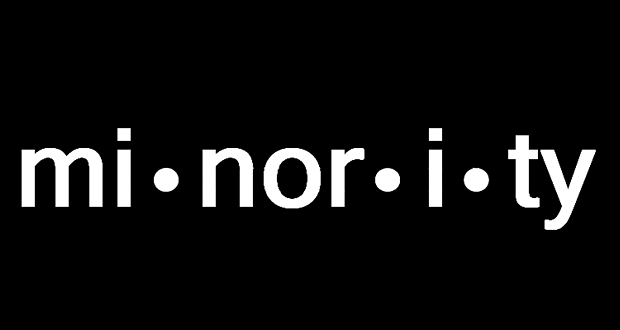
Last week, I shared what “free speech” really means and what it protects. Today, I will take a deeper dive into what employers can do in the context of free speech and political correctness to foster an inclusive workplace.
The American Civil Liberties Union (ACLU) has often argued that we need to move away from the business of “censoring” and, instead, spend more time “educating.” Most of their ideals, I believe, could be applied to organizations. In fact, organizations should strive to create environments that foster understanding and mutual respect among employees, and where all individuals can exercise their right to participate meaningfully in the organization without being subject to discrimination.
To advance these values, business leaders should:
- Speak loudly and clearly against expressions of racism, sexism, homophobia, and transphobia, as well as other instances of discrimination against historically marginalized individuals or groups,
- React promptly and firmly against acts of discriminatory harassment or intimidation,
- Create forums and opportunities to raise awareness and promote dialogue on issues of race, sex, sexual orientation, and gender identity,
- Intensify their efforts to ensure broad diversity within all levels of the organization, and
- Promote a climate of robust and uninhibited civil dialogue, open to all views, with the goal of creating mutual understanding.
Employers need to know that allowing harassing speech in the workplace can and will lead to liability. Regardless of whether the employer agrees with the statements made, the employer is required to prevent harassing speech and other incidents that create a hostile work environment, if nothing else, to avoid liability. In addition to clear policies, employees need to be made aware of where to go if they are feeling harassed, uncomfortable, threatened, or intimidated. Adopting the attitude that everyone has the right to express themselves will not be viewed favorably by most courts (as seen in the Marigny v. Mercury Air Center case). In fact, responsible employers…
- Are diligent about preventing harassment, discrimination, and any offensive remarks about race, gender, religion, age or sexual orientation. If an employee makes discriminatory comments or creates a hostile environment for others, the issue is dealt with in a swift manner.
- Have clear policies regarding employee conduct or behavior and ensure they are distributed to all employees. These policies should clearly explain that you won’t tolerate intimidating, discriminating or harassing behavior, or anything that interferes with workplace productivity.
- More importantly, they explain why these policies and speech restrictions are important to the company’s wellbeing. Telling employees why something matters, gives them the opportunity to contribute to the organization’s culture.
- Understand that controlling speech won’t solve the real issues. Regulating racist or sexist comments will certainly contribute to a positive climate in the organization. However, we are still far away from eliminating institutional racism or sexism.
Employers must also understand that workers need to find healthy ways to relate to each other in the workplace – telling jokes may be one way to accomplish that. However, employees need to understand that not all jokes are office appropriate. Rape jokes, as well as sexist, racist or Holocaust jokes are never appropriate. Joking about someone else’s suffering or atrocities is unacceptable. The key, however, is not to ban all jokes from the workplace. It is an invitation for individuals to use their judgement about the appropriateness of their humor.
Within reason, companies must create environments where employees are free to be themselves. They should not feel anxiety about saying the “wrong thing” and, consequently getting fired. So many people are terrified of saying the “wrong thing.” At the same time, there are too many missed opportunities for authentic dialogue in the workplace. That is why building a climate of trust and respect is important. This way, if I inadvertently offend someone, that person should feel empowered to start a conversation with me and share his or her perspective. Dialogue and not admonition should be the modus operandi in any organization.
Within reason, companies must create environments where employees are free to be themselves. Share on XIn the article, “How Politically Correct Should the Workplace Be?,” Conor Friedersdorf suggests the following guidelines when dealing with jokes in the workplace:
1) Did it actually upset anyone?
2) Was the intent malicious or innocent?
3) Was the joke or remark substantively at odds with company values?
When the answer to at least two of those is yes––or when the intent is clearly malign––action is probably warranted. If not, doing nothing might be the best bet.
Today’s workplace is far more diverse than it was a generation or so ago. Employees bring different races, genders, sexual orientations, abilities, and personal histories to the work environment and, with that, vast differences in cultural orientations and worldviews. As leaders of these diverse teams, it is more important than ever that you take the necessary steps to challenge toxic speech and cultivate an environment of mutual respect, dignity, and inclusiveness. Unfortunately, the poor examples coming from our political leadership today only serve to muddy the matter even further. Characterizing Mexicans as “rapists” and calling entire countries as “shitholes” as we have witnessed recently, is not an exercise of free speech. It is, instead, an example of poor leadership, and an irresponsible and ineffective attempt of engaging individuals in a meaningful, and much needed, debate on immigration. Hate speech is harmful!
Political correctness in the workplace is not, as many unfortunately see it, a blind censorship of opinion. It is, however, a suppression of harmful speech acts and an invitation to civil dialogue because all employees have the right to work in an environment free from harassment. Words do matter! Caring and culturally responsive individuals tend to use them to foster a better working environment. Ultimately, political correctness is about recognizing the weight your words carry and the impact of those words, even if they were uttered in good intention. It is about understanding the clear distinction between “can I speak” and “should I speak.”
Ultimately, political correctness is about understanding the clear distinction between “can I speak” and “should I speak.” Share on X

















